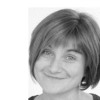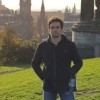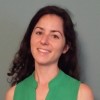There are a number of Research Fellows working on a wide range of projects in the Department of Chemical Engineering. For a full list, please visit the Current Research Fellows page.
You can browse Q&A sessions with certain Fellows below. Hear their thoughts on the College and department, their careers and Fellowships so far, and advice they would give to potential applicants.
Research Fellows Q&A
 Francesca has been a Junior Research Fellow since 2016 in the Department of Chemical Engineering. Francesca’s research is in the field of synthetic biology and focuses on the investigation of host-construct interactions in mammalian cells, towards bioproduction and therapeutic applications.
Francesca has been a Junior Research Fellow since 2016 in the Department of Chemical Engineering. Francesca’s research is in the field of synthetic biology and focuses on the investigation of host-construct interactions in mammalian cells, towards bioproduction and therapeutic applications.
What is your favourite thing about the Department of Chemical Engineering?
This is a top global department which offers the opportunity for strong actions with industrial partners. We really focus on placing our research in the real world, both for health and production of added-value chemicals. It's really important for me to see that my research is impacting peoples' lives.
I am fortunate to have truly helpful colleagues here. This has helped in the development of my professional network and my research. For example, I can interact with researchers who carry out research complementary to mine and can advise me. This is important in improving the depth of my research. My colleagues also support me a lot and they understand what it means to be a Fellow in terms of my goal of establishing myself as an independent researcher.
What is the proudest moment in your career to date?
Three examples spring to mind! Being awarded a Junior Research Fellowship was a proud moment, of course, as I worked hard on my application and it was gratifying to be successful. Being accepted recently for a Nature Methods Publication after many years of hard work was also a really proud moment as this is a prestigious scientific journal.
From a personal perspective, I would say going on and returning from maternity leave. I continued with my work whilst not compromising on caring for my new baby and this is an achievement that I will always be proud of.
Why have you chosen to do your Fellowship at Imperial College London?
I knew that I wanted to do my Fellowship in a chemical engineering environment as it is such a complementary discipline, and the Department of Chemical Engineering at Imperial College London is globally renowned.
Beyond this, the Junior Research Fellowship offered at Imperial College London really appealed to me. There is no obligation to teach or carry out administrative duties, and the Postdoc and Fellows Development Centre offers support to early career researchers. For example, they provide one to one sessions and mock interviews. I knew that I would find it really useful to have this support.
What benefits do you think your Fellowship will bring you?
My Fellowship offers me the opportunity to confirm my profile as an independent researcher and prove that I am able to successfully carry out research and apply for grants. This capacity to establish myself will be invaluable for progression in my career, and my Fellowship offers me a unique opportunity to demonstrate what I am capable of.
What advice would you give somebody applying for a Fellowship?
Without a doubt, my top piece of advice would be to ask for advice – or learn to ask for advice if you aren’t used to doing so. Speak to people who have been successful in their Fellowship applications and share applications. People are generally happy to show you their successful applications!
Take advantage of the Postdoc and Fellows Development Centre and the mock interviews on offer. I found it invaluable to have an environment which I could fail in without repercussions, and the advice the Centre provides is really useful in improving your confidence and performance.
I would also really recommend taking the opportunity to act as a co-Principal Investigator or Co-investigator when you are a postdoc if you get the chance. This will look great on your CV and will be valuable experience.
Where do you see yourself in 5 years' time?
This is a difficult question! I’m not sure and it’s difficult to tell as the academic environment is so competitive that you can’t take anything for granted.
I do know two things, however. I want to belong to a group doing exciting and relevant research, and I want to be a balanced researcher. I admire researchers who know when it’s time to stop and take a break, and think that this is really important in being able to give time to people around you, including students.
How has the department/PFDC supported you?
When I was applying for my Fellowship the department was very useful in providing support. For example, my sponsor, Peter DiMaggio, and colleagues offered feedback on my application and helped with mock interviews. The PFDC also helped greatly in terms of mock interviews and reading my application.
In terms of support now, the department is great as my colleagues really understand my position as a Junior Research Fellow, offer support and share instruments. I have always found our Head of Department, Nilay Shah, available to talk if needs be. During the process of going on maternity leave, I felt truly supported by the department and was impressed by the positive approach taken, which was so helpful.
The PFDC is always available for support and feedback and I have participated in a number of development days and pop-up training sessions which have been important for my personal development. One thing which I have really appreciated is the PFDC Funders Showcase. This is an event which offers the opportunity to meet and network with different sponsors and funding bodies, such as EPSRC, and has been key in developing my understanding of research grants.
 Antonio joined the department in 2017 as an EPSRC Research Fellow and works in the field of bioprocessing alongside Dr Benoit Chachuat. Antonio’s research is computational as he models the process of using microorganisms to convert light and nutrients to useful products such as biofuels. He also works in collaboration with experimental groups.
Antonio joined the department in 2017 as an EPSRC Research Fellow and works in the field of bioprocessing alongside Dr Benoit Chachuat. Antonio’s research is computational as he models the process of using microorganisms to convert light and nutrients to useful products such as biofuels. He also works in collaboration with experimental groups.
What is your favourite thing about chemical engineering?
I like that chemical engineering offers challenging and varied systems. I am a computational researcher and the discipline of chemical engineering offers the opportunity to use computational tools to represent real life situations.
What is the proudest moment in your career to date?
I would have to say when I received my PhD in 2017. I put in a lot of work and effort over three years and overcame various challenges, so it was a really rewarding moment for me.
Why have you chosen to do your Fellowship at Imperial College London?
My Fellowship is hosted by the Centre for Process Systems Engineering (CPSE) in the Department of Chemical Engineering. CPSE is one of largest global centres for the kind of research I do, and I knew that this would bring the opportunity for unrivalled expertise, facilities and collaborations. I also think that there is an excellent combination of computational and experimental work, and this synergy appealed to me.
What benefits do you think your Fellowship will bring you?
My Fellowship offers me the opportunity to pursue my own ideas. The ability to carry out my own research unrestricted by others attracted me to a Fellowship. I feel as though I am in charge of my own professional development as I am able to use my funding to attend workshops or courses if I feel they would be of benefit.
What advice would you give somebody applying for a Fellowship?
I think that it’s important to collaborate with other researchers and work across disciplines when you have the opportunity to do so. You should definitely seek the support of a senior colleague to guide you through the application process.
Go for a Fellowship in a subject which you are confident in and have expertise on. You will need to handle tricky technical questions at interview and demonstrate that you are skilled in the area you’re applying for!
Where do you see yourself in 5 years' time?
I would like to have a permanent position in academia, working in the field of bioprocessing and specifically biofuels. Ideally, I would like to lead a group working to create biofuels which compete with petrol fuels.
How has the department supported you?
I have been fortunate to have worked with colleagues who are more than happy to share ideas and collaborate, which has been really useful for my professional development.
I have also enjoyed attending CPSE seminars, which have been invaluable in widening my awareness of the range of research carried out by the centre. I try to follow up afterwards with topics I found especially interesting and have appreciated that the department organises these seminars.
 Kyra has been a Royal Society-EPSRC Dorothy Hodgkin Research Fellow in the Department of Chemical Engineering since 2016. Kyra's research focuses on reactions and interactions in multiphase systems, taking a holistic view of these phenomena. Her work looks at fundamentals whilst remaining industrially applicable, with a particular interest in the process of corrosion.
Kyra has been a Royal Society-EPSRC Dorothy Hodgkin Research Fellow in the Department of Chemical Engineering since 2016. Kyra's research focuses on reactions and interactions in multiphase systems, taking a holistic view of these phenomena. Her work looks at fundamentals whilst remaining industrially applicable, with a particular interest in the process of corrosion.
What is your favourite thing about chemical engineering?
My favourite thing is the multidisciplinary nature of the field: chemical engineering is not just one thing. Our field encourages the idea of thinking about problems from the small scale, i.e. molecular level, all the way up to industrial scale. And in parallel, we look at fundamentals whilst keeping always keeping an eye on the industrial applicability.
For me, the range of industrial applications demonstrates the variety of the research we carry out and its enormous impact. No two chemical engineers are the same, yet there remains a core from which we all build.
What is the proudest moment in your career to date?
I think I would probably have to say when one of my current PhD students, whom I supervised as an MSc student, won the MSc Research prize in her year.
Why have you chosen to do your Fellowship at Imperial College London?
The opportunities afforded here in terms of access to facilities, equipment and collaborations are near unrivalled.
What benefits do you think your Fellowship will bring you?
In these first years as an independent researcher, I have been really lucky to have a Royal Society – EPSRC Fellowship. It has given me the time and freedom to develop myself as a researcher, and to invest wholly into my research group. I get to really delve into research questions and problems with my students, which is an incredible experience.
In addition, I have been able to take the time to get involved in causes that are important to me. This has included working with the Royal Society in various capacities, including representing early career researchers on various panels. At Imperial College London and outside, I have also been able to take the time to work on encouraging girls to study STEM subjects and think about careers in engineering.
From a personal standpoint, the flexibility that my Fellowship offers has been amazing to know that I could work part-time if I wanted or needed. I have two small children and the aspect of flexibility is certainly a benefit.
What advice would you give somebody applying for a Fellowship?
Be yourself. This opportunity is for you and you alone, so you should be who you are. Don’t be who you think the panel want you to be, just be yourself. Dream big and go all in.
Where do you see yourself in 5 years' time?
I expect to have graduated PhD students and have a group that has reached a steady state with students at all stages. But more than that, this is about developing projects and collaborations. I want to be working on exciting problems which are intellectually challenging and industrially applicable.
Keeping challenged is key for me, I love it when I get stumped – I find that frustration really pushes me and I tend to come up with some interesting ideas during the process of looking for the solution. And it is so satisfying when you solve those kinds of problems too!
How has the department supported you?
I have been exceptionally fortunate to have had support from many members of the department. In particular, the collaborations have been one of those ways that is more covert but has really helped me in developing into an independent academic. That sounds counterintuitive but I feel more confident in my own shoes through my dynamic interactions with my collaborators.
Probably most importantly, Daryl Williams was instrumental in pushing me to apply for my Fellowship, encouraging me and giving me the confidence to go through with the application. I often think about his encouragement in developing my career when I am helping my own students to help them reach their own potential, be it academic or otherwise.
Applying?
Current departmental members should visit our intranet pages for further information on Fellowships.
